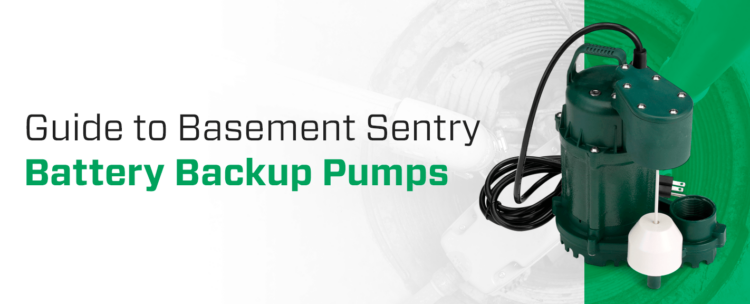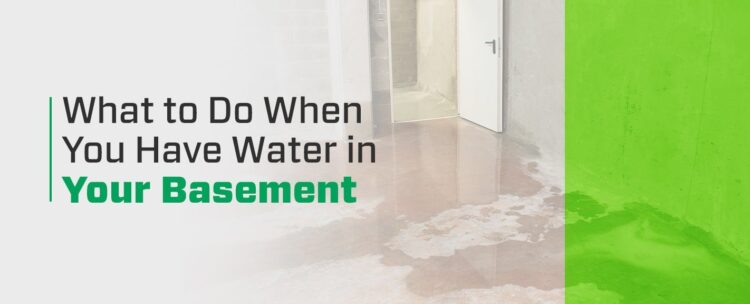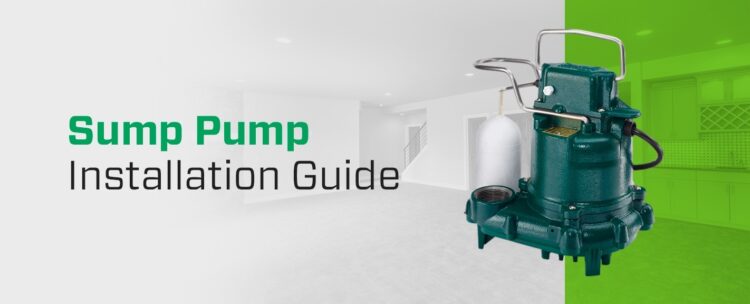
Are you thinking of adding a well to your property or purchasing a property with a well? Millions of homeowners across America have already installed wells on their property. This number keeps increasing as more and more homeowners realize the perks associated with tapping into their property’s own water supply.
Certified well drillers and pump installers can set up a private well nearly anywhere. Aside from the equipment and professional expertise needed to dig the well, all that’s needed is a well pump, a water storage tanker and a filtration system for your home. After installation, you will have access to fresh water directly from the Earth.
Let’s take a deeper look at the benefits of installing a household water well and evaluate key considerations so that you can make an informed decision.
Why Should You Install a Well on Your Property?
If you’re considering adding a well to your property to tap into an alternative water source, you should know the array of benefits.
1. Reduced Water Costs
The costs of using municipal water systems vary significantly across America. Water is billed according to municipality and usage, so water bills can range drastically, with some people paying hundreds of dollars a month for water. The Environmental Protection Agency estimates that the average family of four spends over $1,000 yearly on water costs.
In comparison, using a private well on your property is free. Aside from the installation and an annual water test, residents with wells have unlimited access to fresh, free water. You’ll be able to water your yard freely or take long showers without worrying about receiving a steep bill at the end of the month. While you may still pay an annual fee to be able to access your public water system if needed, there is no cost associated with using a well.
2. No Need to Rely on Municipal Water Sources
Municipal water supplies are readily available for most homes. Residents are liable for a monthly water bill that covers maintenance and repair costs for these systems, and the municipality handles the rest. Unfortunately, that doesn’t mean water supplies are always reliable. In some areas where water reserves are limited, cuts in the water supply are becoming more common.
Water cuts can disrupt daily life as residents are forced to compensate by purchasing bottled water or sourcing it otherwise at their own cost. While the costs of bottled products can add up substantially, the inconvenience of having to collect water from nearby sources or the nearest empathetic neighbor with a well is just as impactful to residents during cuts.
When using a private well, residents are not affected by municipal interruptions. Instead, the supply from a well is undeniably reliable. Sometimes, water levels can lower, and homeowners may need to drill deeper or switch to a more suitable pump that can reach the water table; though that occurrence is rare. As a result, using a well is a reliable alternative to municipal systems that may fail.
3. Less Impact on the Environment
Well water comes directly from the Earth, without any added chemicals for purification. Instead, a well water system includes an ultrafiltration membrane system to filter and disinfect the water before it enters your home. As a result, homeowners with wells get access to clean water without the use of chemicals that can negatively impact the environment.
Additionally, well water is kinder to the environment because it requires far less heavy construction than that associated with municipal water lines. Moreover, wells can deliver fresh water to areas municipal lines do not reach, effectively assisting rural communities without disrupting the Earth.
4. Increased Property Value
Some home improvement projects can have a negative impact on home value. Before investing in any kind of property upgrade, it’s wise to determine how the change will impact the value of your property. Fortunately, installing a well will increase property value for several reasons.
A private well can enhance the appeal of a property, especially in areas where municipal water cuts are an ongoing concern. This property feature is a practical solution to unreliable water supplies. A well can also boost property resilience. Because properties with this feature are less exposed to the impacts of situations that cut off this essential supply, it is an undeniably valuable selling point for any home.
In many cases, properties with water wells can be considerably more attractive to buyers thanks to the prospect of a reliable water source and potential cost savings.
5. Potential Health Benefits
With the right filtration system in place, well water can be significantly healthier than municipal water. Municipal systems use a variety of synthetic and organic chemicals to clean water and remove contaminants. Aside from potentially harmful chemicals like chlorine, recent research shows that nearly half of United States municipal water supplies contain toxic “forever chemicals.”
PFAS, or per- and polyfluorinated alkyl substances, are a category of chemicals that are practically indestructible and can build up in the body over time. These forever chemicals have historically been found in non-stick cooking pans, various industrial products and household cleaning products. PFAS are linked to multiple cancers and several other severe health ailments.
Well water does not contain forever chemicals, or any chemical for that matter. This water comes straight from the aquifer below ground and does not flow through any chemical filtration processes — unlike municipal water, which accesses surface sources. As a result, it can be cleaner and fresher, especially when you have your water consistently tested for bacteria and other impurities.
Key Considerations When Installing a Residential Well
There are many valuable environmental, health and financial benefits associated with residential wells. However, you should still note a few considerations before investing in one for your property.
Installation Costs
Although investing in a private well for your home will reduce water costs, wells still come with initial expenses. The average cost of drilling a residential well is a little over $5,600, depending on well depth and other environmental factors. Other essential costs include materials like the pump, storage tank and filtration system. Altogether, you can expect to pay a few thousand dollars to get your system installed and operating properly.

Considering the long-term savings that come from a well, many homeowners see a return on their investment within a few years. This return on investment is best reflected in your current water bills. As many Americans pay about $1,000 yearly for their water use, it may only take five years before your system effectively pays for itself.
Electricity
Unless you have a manual pump in your residential well, an electric pump will deliver the water into your home. With an electric pump, you won’t have normal access to fresh water in the event of a power failure — you’ll have to rely on the water left over in the storage tank. Fortunately, if a power outage lasts several days, you can use a generator to power the pump and provide water.
Investing in a large storage tank is another solution to preventing power outages from affecting your water supply. By choosing a tank that’s slightly larger than needed to meet your water use, you can always have extra on hand during outages. If your area is prone to grid failures or other power-related issues, you may need to consider this aspect of well installation more carefully.
Filtering System
Despite the beneficial lack of chemicals, sulfur and other minerals like iron and lead are often present in well water. It is only safe to drink when using a certified water filtration system. Untreated well water can contain hazardous levels of minerals, and ongoing exposure to such a high concentration of these minerals can lead to severe health consequences. Beyond the mineral content, filtration is also essential to remove potential fungal or bacterial contaminants that can make you sick.
Filtration can soften water and remove smells, metallic tastes and unusual colors. Safe drinking water must be odorless, colorless and tasteless. At the same time, filtering prevents limescale and rust stains from building up.
The most suitable filtration system should incorporate a water softener, ultraviolet light filter, reverse osmosis, kinetic degradation fluxion, carbon block filters or similar filtration components. Most modern whole-house filtration systems and smaller under-sink filters will use these filtering components, so there is no need to invest in each element separately. You just need to make sure your well system has a filtration system in the first place.
Maintenance
When relying on municipal water sources, the municipality is responsible for all upkeep, repairs and services for the systems. Homeowners sometimes need to report water supply problems to the city, but in most cases, systems are efficiently monitored, maintained and repaired, so residents rarely notice issues with their water supply.
In contrast, when installing a residential well, the homeowner is responsible for all monitoring and maintenance of the fixture and water. While municipal water is practically maintenance-free, homeowners must test their well water annually to ensure it’s not contaminated. Depending on the testing kit you use and which contaminants you test for, these costs can be upward of a few hundred dollars. Additionally, you might need to replace the pump due to wear and tear after some time.
These costs are still substantially lower than those associated with relying on municipal systems in the long run.
Essential Residential Well Maintenance Tips
As mentioned, monitoring and maintaining a well is entirely your responsibility as the well owner. The basics of residential water well maintenance is important to keep in mind.
- Rely on licensed drillers and pump installers to install and service the system.
- Ensuring the well is installed a safe distance away from your home and waste systems.
- Perform an annual maintenance assessment that includes a bacterial test. This test will evaluate water quality to ensure it is drinkable.
- Keep hazardous contaminants like paint products and pesticides away from the well.
- Routinely inspect the cover and casing for damage.
- Ensure landscaping does not interfere with the top of the well. The top of the fixture must be kept at least 1-foot above ground level. It’s best to slope the ground away from the well to encourage drainage when landscaping.
While the primary benefit of relying on municipal systems is that homeowners have no maintenance responsibilities, using a private well can be more affordable, healthier and better for the environment. Even though there are some costs and a few maintenance efforts to consider, investing in a well is an effective way to boost property value overall.

How to Choose the Right Water Storage Tank Size
Most residential well storage tanks come in five standard sizes — 20, 30, 50, 60 and 80 gallons. To choose the right size for your home, you should consider your home’s water usage and flow rate. Your regular water bill should provide accurate insight into water usage.
The flow rate refers to how many gallons per minute the pump can produce. Next, you will need to multiply the flow rate by the drawback capacity of the pump. The general rule here is that 10 gallons per minute or under will produce about 1 gallon per minute in runtime. If your flow rate is above 20, you might need multiple tanks.
These calculations can be confusing. If you still aren’t sure how to figure out what size storage tank you need, you can always reach out to us at Zoeller at Home for guidance. One of our experts will recommend the right tank size considering the well pump’s capabilities. Most households use a 50-gallon storage tank, but it’s always best to confirm which size is best to avoid potential water pressure and access complications.
Shop Zoeller at Home to Take Advantage of the Benefits of Well Water
Whether you want to tap into your home’s own water supply to access cleaner drinking water, avoid water cuts, reduce your utility bill or boost the value of your property, a residential well can be a savvy, eco-friendly investment for a variety of homeowners.
If you’re ready to make the switch from municipal systems to well water, Zoeller at Home offers durable well pumps you can use to transform your property. Our range of products includes quality low-maintenance pumps for both deep and shallow wells. Discover where to buy our products in person today!
If you have questions about which well water pump is best for your home, reach out to our team to learn more about our products and how to choose the right one. We’ll be happy to help you make a more informed decision.




